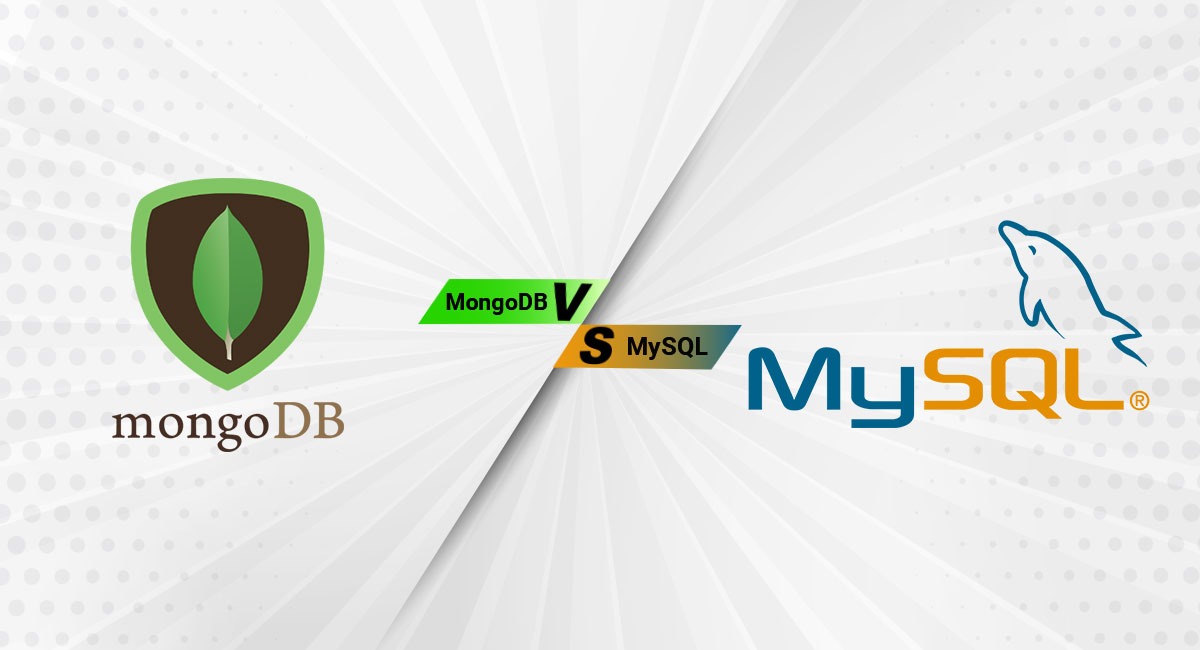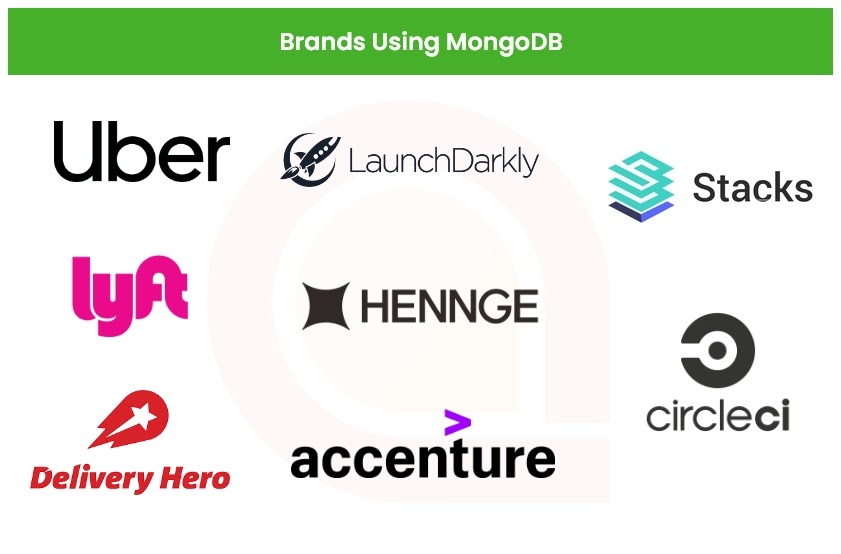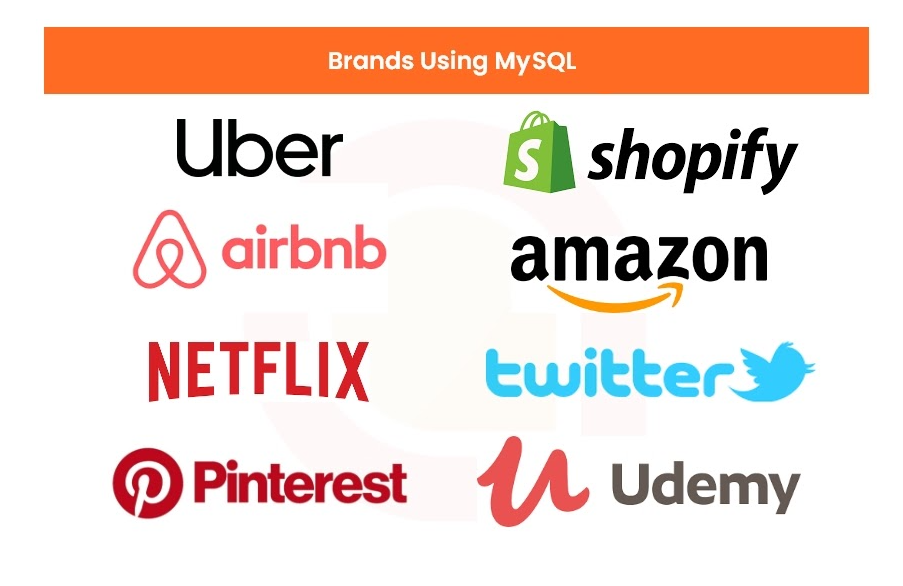MongoDB Vs MySQL: Difference to Know Which One is Better

Developing a database is not as easy a task as it seems. Of course, you can’t prefer to take technical decisions based on emotional feelings. Before making the decision, you need to go through a comparative study in MongoDB Vs MySQL, the difference can help you to make a better and intelligent choice.
[toc]
It would help if you found the pros and cons of each option and how they align with your business requirements. The article shows the uninterrupted comparison of MongoDB and MySQL. The comparison is quite similar to finding the difference between two of your fruits, Asian Pears and Oranges, instead of comparing the two same fruits like watermelon with watermelon itself.
MongoDB is a NoSQL query language, whereas MySQL is a SQL query language. Hence before specifying the difference between both databases. You need to understand both the terms when to use them. Besides this, it also becomes essential for you to learn the pros and cons of each of them and much more, helping you to make an intelligent choice.
What is MongoDB?
Also styled as a non-relational system, it is free to use query language. The design principles of MongoDB are considerably distinct from traditional relational systems. It utilizes a significantly distinct appearance to storing data, interpreting details as a series of JSON-like records, as objects of relational systems.
Most MongoDB files possess key or value pairs of varying types, including nested and arrayed documents. Moreover, the primary difference is the structure of the pairs provided in the collection. It differs from one file to another; this is a flexible approach because records are self-describing.
Why Use MongoDB?
MongoDB is developed on a scale-out architecture that has grabbed the spotlight among MongoDB developers quickly. It makes it easier for developers to craft robust apps using an effective methodology. Most users prefer this query language because:
- Provides great development speed to developers;
- Supports significant traffic and data;
- A global community provides you with quick support whenever required;
- The query language works efficiently on most types of computing platforms, including cloud and on-premise;
- It can be used with all major languages;
- Can be accessed from most data management systems;
Principle of Query Language
The structured query language is developed for developers who aim to craft solutions that ensure business enhancement. They need quick evaluation and scale elegantly. Users who want to leverage the best features and functionality will prefer to use MongoDB. The principle of the query language includes:
- Every database possesses collections that contain records;
- The record is different with a different number of fields. The content and size of records can vary from each other;
- Each database contains collections that, in turn, contain documents.
- The document structure depends on how developers build their objects and classes in their project;
- There is no need for the schema in rows;
- The query language enables users to represent the hierarchical relationships;
- MongoDB makes it easier for users to store arrays and other structures more efficiently.
Advantage & Disadvantage of Using MongoDB
The NoSQL database is used mainly by developers these days for the advanced web these days. It is mainly preferred over a relational database. However, the database comes with its advantages and disadvantages.
Why to Use MongoDB
| Advantages | Disadvantages |
|---|---|
| Don’t need a schema to use MongoDB | It’s not strong in terms of Atomic, Consistency, Isolation & Durability (ACID) when compared to other database systems. |
| Saves a lot of time | Limit for document size, i.e. 16MB |
| No need for complex joins; there is a relationship among the data | Lack of transaction support |
| It is easy to scale, set up, and install | |
| NoSQL database is simple compared to SQL queries | |
| MongoDB uses JSON format to collect data, it’s easy to store objects and arrays | |
| It’s free to use and provides great performance compared to a relational database. |
MongoDB is a widely used NoSQL database. More than 26,800 customers prefer to use MongoDB in 100+ countries; it has been downloaded 175 million times and has more than 1.5 million MongoDB University registrations. It’s easy to understand and provides a lot of options. MongoDB is powerful and widely used along with the NodeJS and AngularJS frameworks. It is an essential part of the MEAN stack.
Big Tier Companies that Use MongoDB

What is MySQL?
It is an open-source RDBMS extended by Oracle. MySQL stores all the information using rows and tables, supports referential integrity and utilizes structured query language (SQL) for data access. However, to retrieve data from a MySQL database, they must build an SQL query that joins numerous tables to build the view on the data they need.
The rigorous approach to robust data provides some degree of protection but trades for flexibility. Users need to define data models and database schemas to define ahead of data and time this schema must be stored in the database. Users need to store records in the database; the schema migration might occur and become complicated and costly as the size of the database increases.
Why Use MySQL?
The advanced version of MySQL is the most popular database. MySQL is reliable and compatible. It is open-source, reliable, and harmonious with all primary cost-effective, easy to manage, and host providers. Most businesses are leveraging the solid transactional and data security support provided by MySQL.
It secures online transactions and improves customer interactions. Moreover, brands use MYSQL to impersonate various difficulties when mobile apps experience exponential increases and require supplementary scale. Using MySQL is the best option, especially when it comes to:
- Securing money transactions;
- Robust availability and execution;
- Immediate start capabilities;
- Rock-solid dependability;
- Comprehensive transitional assistance;
- Decreases total cost of entrepreneurship.
Principle of Query Language
MySQL is a standard database management system that is dependent on SQL queries. The Swedish MySQL AB company revealed it. Presently it’s the branch of Oracle Corporation. The system is conceivably the successful and recognizable RDBMS worldwide. There are few principles include few essential features like:
- It is a community-driven DBMS system;
- Compatible with multiple solutions using primary languages;
- It provides sustenance for Multi-version concurrency restriction;
- Acquiescent with the ANSI SQL standard;
- Provides Trigger and Log-based replication SSL;
- ANSI-SQL2008 and Object-oriented appropriate;
- Multi-layered design with autonomous modules;
- Completely multi-thread, using kernel threads;
- It provides built-in tools for space and query analysis;
- It helps you handle different amounts of data.
Advantage & Disadvantage of Using MySQL
It is an open-source product that Oracle obtains. It provides you with total control of alcohol delivery, or any other solution development. Many developers appear worried about the situation. Many brands have turned to the database. It will kill in the future. It makes it a better option; treating it and the uncertainties make it the best option. Explore a few of the advantages and disadvantages of using MySQL right here:
Why to Use MySQL
| Advantages | Disadvantages |
|---|---|
| Improving the performance of apps | Sometimes a server crash and corrupt the system catalog |
| Fast procedure | Limited for complex business logic |
| Portable process | Tough to debug |
| Secure method | Difficult to maintain |
| Reusable and transparent | Stored methods are not cacheable |
Examples of Global Brands Using MySQL
Most brands these days use MySQL as a database. Check the table to know which brands prefer MySQL.

MySQL is an indispensable component of practically each PHP app. Some examples of MySQL and PHP-based scripts include Magento, Drupal, Joomla, and many more. Notable benefits of using MySQL are easy to use, assistance is immediately available whenever required, it is open-source, reasonable, follows business standards, and is notably popular.
Key Difference Between the MongoDB and MySQL – Check to Make Better Choices!
Are you looking to know the difference between MongoDB vs MySQL? Then check the difference listed below based on schema adaptability, connections, security, and much more right away. This can help you choose the best database for your organization and stick with the same for a long time.
MongoDB vs MySQL – Key Difference Between
| Feature | MySQL | MongoDB |
|---|---|---|
| Data Structure | It saves original records as a table cell with rows and columns | It saves irrelevant data in JSON like documents |
| Schema | MySQL needs a schema definition for the tables in the database | MongoDB doesn’t need any previous schema |
| Languages | Supports Structured Query Language (SQL)/td> | Supports JSON Query Language to operate with data |
| Foreign Key | Supports the practice of Foreign keys | Doesn’t support the practice of Foreign keys |
| Replication | Supports master-master replication and slave replication | Maintains replication and sharding |
| Scalability | Can easily be scaled vertically | Can be easily be scaled horizontally and vertically as well |
| Join Operation | Supports Join process | Do not support Join process |
| Performance | Optimize for great performance joins across various tables | Optimize for write performance |
| Risks | Prostrate to SQL injection advance | There are no schema, lesser chances associated |
| Community Support | There are about 7Million commits and 222k repositories on GitHub for support on MySQL | There are about 923k commits and 177k repositories on GitHub for support on MongoDB |
When to Use MongoDB and MySQL?
When to Use MongoDB and MySQL
| MySQL | MongoDB |
|---|---|
High Availability
|
Low-Maintenance
|
In-built Sharding
|
Limited Budget
|
Unstable Schema
|
Fixed Schema
|
No DBA
|
High Transaction
|
Cloud Computing
|
Data Security
|
Using Which Query Language is a Better Choice When You Looking For Mongodb Vs MySQL?
To get the best answer to your question “MongoDB Vs MySQL: Which One is Better”, you need to consider your project development requirements. MySQL grants flexibility, secure data protection, and performance. It can help you develop and manage excellent solutions that ensure more app engagement and drive traffic. But it is pretty hard to handle complex and unstructured data.
When you are looking to handle complex and unstructured data, MongoDB is the best option. MongoDB and MySQL have their pros and cons; hence you can choose the one that caters to your project needs. If you are already working with MySQL and find it challenging to deal with data with the same data, you can go for the second option.
Frequently Asked Questions
1. Does MySQL support JSON?
Yes, of course, MySQL supports JSON files by native data types. MySQL validates the documents and stores them in columns, and optimizes the storage format as well. It’s parsed in a text representation for a server to understand JSON values saved in a binary format.
2. Is MongoDB active compared to MySQL?
Yes, MongoDB is active compared to MySQL. It has a remarkable ability to handle unstructured data efficiently when it comes to speed. The platform uses slave replication, master replication to process a considerable amount of unstructured data and provide flexibility to use multiple data.
3. Which query language does each of them use?
MySQL uses Structured Query Language for data access like other relational databases. While MongoDB uses MongoDB Query Language or MQL, which is easier to practice for developers than SQL.
